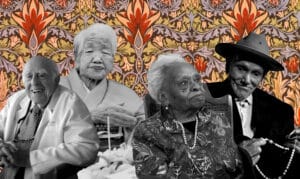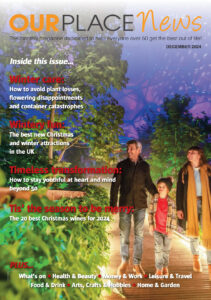Life at its essence is about time and by 2050, nearly 3.7 million people are expected to live up to 100. What can we do to get the most out of our bonus years?

Loneliness. Ageism. Physical limitations, cognitive decline and, increasingly, elder poverty.
The downsides of living to 100 and beyond are numerous. But so are the upsides. Life at its essence is about time – time to live, time to laugh, time to love – and many of those who have achieved a triple-digit age are living their best lives as centenarians.
As I explore in my new book, The Big 100: The New World of Super-Aging, we’re experiencing what the United Nations calls a “longevity revolution”, and there’s no turning back.
By 2050, the number of us reaching 100 is projected to increase eightfold to 3.7 million people – roughly the equivalent of everyone living in Connecticut or Los Angeles.
And half of all five-year-olds alive right now are expected to live to 100.
What can we do to get the most out of our bonus years? Here’s some wisdom from those who’ve been there.
Believe in something bigger than yourself
Had you asked the world’s oldest living man why he lived so long, Juan Vicente Pérez Mora, who recently died just a few weeks shy of his 115th birthday, was always quick to answer: “Love God and always carry him in your heart.” A devout Catholic who prayed the rosary twice a day, the Venezuelan said what he treasured most was “the love of God, the love of family”.
Japan’s Kane Tanaka, who died in 2022 as the world’s then oldest living person, voiced similar sentiments over her 119 years and 107 days. A convert to Christianity from Shinto, she frequently attributed her longevity to her faith.
“The secret is the grace of God living in me, and me trying to live the best life that I could,” says 100-year-old Martha Bailey of Fort Washington, Maryland.
Spirituality is the tie that binds many centenarians and supercentenarians. National Geographic and the Blue Zones organization interviewed 263 people aged 100 or older, and all but five belonged to a faith community. Subsequent research suggests attending religious services four times a month can add at least four years of extra life span.
That squares with the findings of a much larger long-term study suggesting regularly attending religious services can increase life span. A team at the Harvard TH Chan School of Public Health examined data collected over a 20-year period from nearly 75,000 middle-aged female US nurses who were free of cardiovascular disease and cancer when the study began.
Regardless of race or ethnicity, those who attended a temple, synagogue, mosque or church at least once a week had a 33% diminished risk of death from all causes – but especially heart attack, stroke and cancer – compared with those who never went.
“Religion and spirituality may be an under-appreciated resource that physicians could explore with their patients,” the researchers say. The “whys” remain elusive, though some scientists think abstinence from drugs and alcohol – common to many faiths – may help explain the benefits, along with the stress-relieving power of prayer and meditation. There’s also the sense of community and belonging.
Find your purpose
If we’re going to live to 100, we’d better have something to live for. That wasn’t a problem for the US district judge Wesley Brown.
He died at 104 as the oldest sitting federal judge in American history. Sharp and competent to the end, with a wicked sense of humour – Brown used to warn lawyers gearing up for lengthy trials in his Kansas courtroom that he might not be alive for their closing arguments – he credited his very caseload for extending his life by keeping his mind and body active and giving him a sense of purpose.
Well past his 100th birthday, he was still taking the stairs to his fourth-floor chambers. A year before his death, asked how he intended to leave the bench that John F Kennedy appointed him to in 1962, he quipped: “Feet first.”
Dr Ephraim Engleman understood. The 104-year-old rheumatologist died as he lived: at work, at his desk, in between seeing patients at the Rosalind Russell Medical Research Center for Arthritis in San Francisco.
Engleman very deliberately never retired, a move he regarded with suspicion as “generally a great mistake”. One of his top rules for longevity was: “Enjoy your work, whatever it is, or don’t do it.”
Laugh
The world’s oldest person who ever lived whose age could be authenticated by records, credited laughter for her longevity and she should know. Jeanne Calment of France – who made it to 122 years and 164 days – lost her eyesight and her hearing but kept her sense of humour to the last. “I never wear mascara… too often I laugh until I cry,” said Calment, who’s best known for a wisecrack she made at the age of 121: “I only have one wrinkle and I’m sitting on it.”
Herlda Senhouse of Wellesley, Massachusetts, who just celebrated her 113th birthday, didn’t have an easy life as a Black woman in the Jim Crow era. But she giggles through conversations and sees laughter as a perfect way to counter toxic stress, the enemy of longevity. Senhouse’s emphasis on positivity and optimism underscores how both of those things not only add years to our lives but life to our years.
More than mere wishful thinking, positive beliefs around aging have the potential to extend our lives by as much as seven and a half years, according to research by Becca Levy, an epidemiologist at Yale University’s School of Public Health. The cumulative effects of an optimistic outlook even outweigh the steps we take to exercise, lower our blood pressure and cholesterol, and watch our weight.
Love
What’s love got to do with it? A lot more than you might think. Researchers say married people tend to live longer than singles – men by two and a half years; women by a little less – and they also stand a better chance of living to 100.
Tension and conflict in marriage are stand-up comedy staples, but studies have shown that those of us who endure the vicissitudes of life with a partner experience less stress than those who go solo. Couples in happy, nurturing relationships have greater life expectancy free of disability and other health challenges than singles, and they tend to have more financial security.
It’s not the sex, the tax deductions or even the cohabitation. Deep platonic friendships can have the same effect. At an assisted living facility in Montana, two centenarians have found beauty and meaning in a relationship that’s blossomed around their shared love of poetry. When they met, Bob Yaw was 101 and Gloria Hansard was 100. They live down the hall from each other but gather each evening in her apartment to recite verses.
“We didn’t meet long ago,” Hansard told the Bozeman Daily Chronicle. “Just poems are all we know of each other.”
Their friendship isn’t just life-extending. It’s life-giving.
(Article source: The Guardian)

